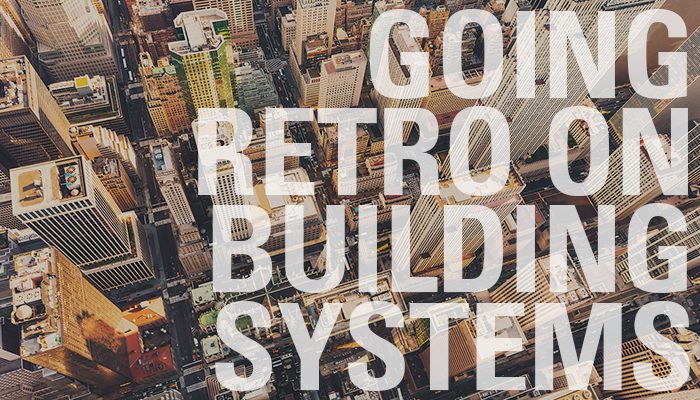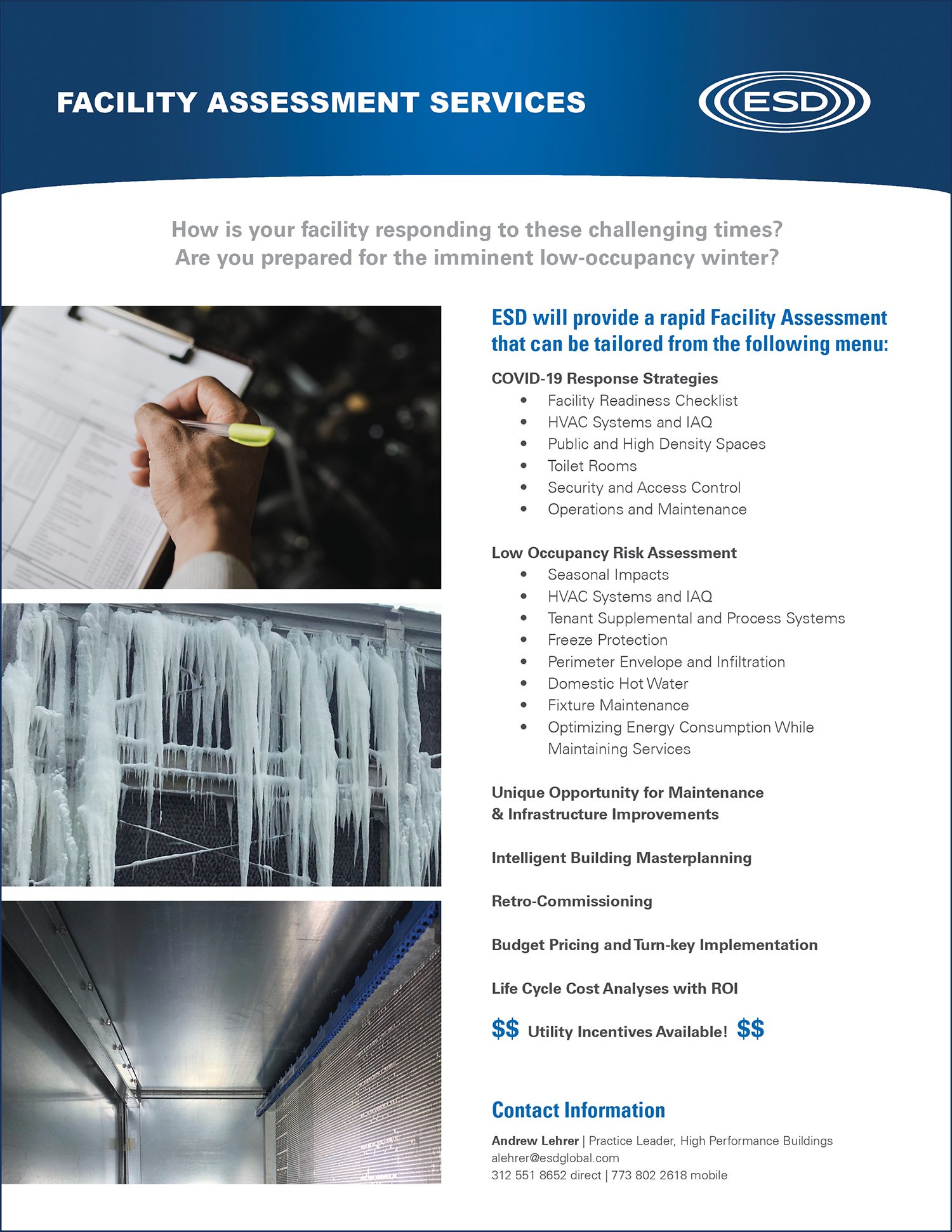Revving Up Retro-Commissioning for Return to Office Planning
By Saagar Patel and Nathaniel Snydacker


By Saagar Patel and Nathaniel Snydacker
Traditionally, retro-commissioning (RCx) is an organized review process designed to improve the efficiency of an existing facility’s equipment and systems. In a pre-COVID-19 world, it was a great way to resolve problems that may have existed during the design or construction phase of a project or those issues that can naturally arise over time due to aging equipment and systems. While retro-commissioning remains an excellent way to realize significant savings at minimal costs, it also has the potential to pay dividends mentally as well as physically as workers prepare to return to office buildings.
Today, retro-commissioning can be just as important to creating a verifiable healthy and safe work environment as it is to reducing operational and maintenance expenses. Building owners, managers, and operators should consider the following questions as they prepare facilities for re-opening.
Retro-commissioning is basically a systemic evaluation of opportunities to improve energy-using systems in a building or facility. Think of it as having a skilled mechanic lifting the hood of your classic auto and deciding which controls and settings to adjust to align engine efficiency with how you actually drive. If your vehicle has been sitting idle for an extended period, it would be wise to have it inspected before firing it up and hitting the road.
With COVID-19 shuttering many businesses for the past year or more, many buildings have been operating at lower capacities with some systems sitting idle. Low occupancy can mean decreased demand on building systems. For a low or no-load building, going into the summer season with occupants returning to the office can be like starting up systems for the first time when a building was new. Cooling systems are prone to problems caused by prolonged inactivity. And like a car sitting idle in a garage all winter, a smooth restart may be questionable. Shuttered or under-used office spaces could face similar concerns about reopening.
As more businesses look to head back to the office, more systems will be coming back online. If they are not operating smoothly, building owners and operators face the risk of tenants viewing workplaces more negatively than in the past. What was once considered an annoyance (an office being too hot or too cold, for example), may now be seen as “unhealthy.”

Retro-commissioning can offer greater peace of mind to returning workers.
With or without a pandemic entering the equation, it is also possible your building is an excellent candidate for retro-commissioning if any of the following criteria apply:
Retro-commissioning can help verify that building systems and processes are properly functioning as originally designed. If they are not, steps can be taken to correct problems by realigning and recalibrating systems.
Having a qualified mechanic do a detailed vehicle inspection may turn up some pricey problems. However, not looking for them in the first place does not protect you from facing trouble down the road. Likewise, ignoring signs that a retro-commissioning review is warranted may ultimately be more expensive than finding and addressing potential systems failures before they happen. Even if catastrophic problems are not found, a thorough retro-commissioning process may result in various recommended upgrades or changes.
The good news is needed upgrades identified in a retro-commissioning exercise could qualify for tax incentives through the Coronavirus Aid, Relief, and Economic Security (CARES) Act and the Qualified Improvement Property (QIP) program. The CARES Act permits some non-residential property owners to qualify for 15-year depreciation and eligibility for a 100-percent first-year bonus depreciation.
Leveraging existing retro-commissioning programs may be possible and can help offset some of the costs of a study performed by a licensed professional.
For existing structures that have never undergone the commissioning or re-commissioning process, retro-commissioning is certainly worth careful consideration. The process usually results in improved equipment and system functionality that goes beyond basic operation and maintenance. It can provide a comprehensive review of a building’s energy performance, which can result in reduced costs and increased environmental dividends. Retro-commissioning can also improve day-to-day processes through the careful review and updating of operation and maintenance guides, system diagrams, and sequence of operations. This can reduce costs and improve life spans for equipment and systems. Ignoring the efficiency of building systems can ultimately prove more costly to your business, your employees, and the environment.
As Operations Director for the Energy+Eco team, Saagar Patel brings a passion and expertise in energy and sustainability to ESD’s mission to improve society through the built environment. Co-author Nathaniel Snydacker shares a similar dedication to world ecology in his role as Managing Director of the Workplace Solutions group at ESD where he also designs efficient and cost-effective mechanical systems for buildings.
For more information on retro-commissioning, contact Saagar or Nathaniel.
Interested in learning more? Check out these related news items.
The inaugural event looking to foster collaboration between real estate developers throughout the Midwest is set to take place in Chicago October 12. The goal is to focus on underrepresented populations in commercial real estate. (Learn more about Diverse Developers Conference.)
Going green with building certifications like LEED, WELL, and Energy Star can be a significant step towards reaching net zero carbon emission goals, but ESD, now Stantec Energy Engineer Matthew Zweibruck says don’t stop there. (Learn more about the FacilitiesNet summit.)
In a recent feature published in the Mann Report, ESD, now Stantec Energy Engineer Matt Zweibruck says a review of existing building systems can uncover hidden opportunities for increased sustainability and energy efficiency. (Read more about RCx.)